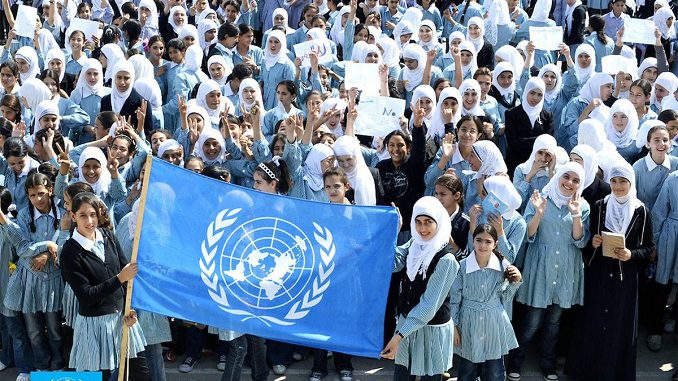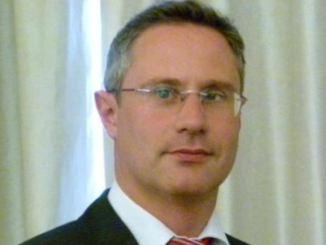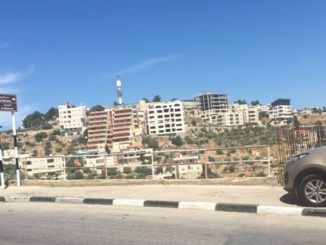
By Ramona Wadi
In the aftermath of the US decision to end its funding of the United Nations Relief and Works Agency (UNRWA), the EU has pledged to continue its financial support. In terms of the agency being able to continue providing services to Palestinian refugees, the news is undoubtedly welcome. However, the EU is still failing Palestinian refugees in terms of why it has decided to continue funding UNRWA.
According to a statement partially published by Wafa news agency,
“The EU is committed to securing the continuation and sustainability of the agency’s work which is vital for stability and security in the region”.
For all diplomatic intents and purposes, Palestinian refugees are merely an appendage to be used and exploited politically. Building upon the absence of historic Palestine and speaking only about a hypothetical Palestinian state, the international community, including the EU, gave Israel a green light to claim, albeit while exonerating its colonial presence from accountability, that there is a perpetuation of maintaining the status quo for Palestinian refugees.
The EU has no vision for Palestinian refugees and does not care whether they will return to their homeland or not. While it will continue to support UNRWA, it must be said that the dynamics are those of institutions supporting other institutions. A viable way to do so without raising the ire of the victims emphasizing the humanitarian intent. Depoliticizing humanitarian aid, however, has opened avenues for political entities to coerce victims into remaining victims.
By promoting the provision, or withdrawal of, financial support for humanitarian aid depending upon the actors involved, Palestinian refugees are deprived from a collaborative political commitment to change the passiveness enshrined within UN Resolution 194.
Trump’s decision adds to the consequences of the earlier colonial ethnic cleansing and displacement, while the EU’s reiteration that it will continue funding UNRWA ensures that its provision of basic services for Palestinian refugees can proceed. Yet, common to both US and EU actions, is the underlying motive to ensnare refugees in perpetual dependency.
The most convenient way to achieve that is to balance contrasting actions in a way that promotes and maintains refugee dependency upon international humanitarian aid. With that balance, obligations are forced upon Palestinian refugees to accept whatever the international community deems as suitable parameters. A Palestinian right of return that departs from the Palestinian narratives was never on the agenda for the complicit international community.
Currently, the only discourse that defines the existence of Palestinian refugees is eclipsed by UNRWA and the funding saga. The international community has willingly participated in the snare created by Israel and the US – that of amalgamating Palestinian refugee identity to the agency providing basic needs, instead of speaking about Palestinians in direct relation to historic Palestine.
Israel’s plan, carried out by the US, seeks to disrupt UNRWA and, as a result, refute recognition of the Palestinian refugee condition and their right of return. A strong rebuttal from the international community is non-existent; the reason being that Palestinian refugees and their right of return are externally defined by a flawed, non-binding resolution endorsing Israel’s colonization first and foremost.
– Ramona Wadi is a staff writer for Middle East Monitor, where this article was originally published. She contributed this article to PalestineChronicle.com.







